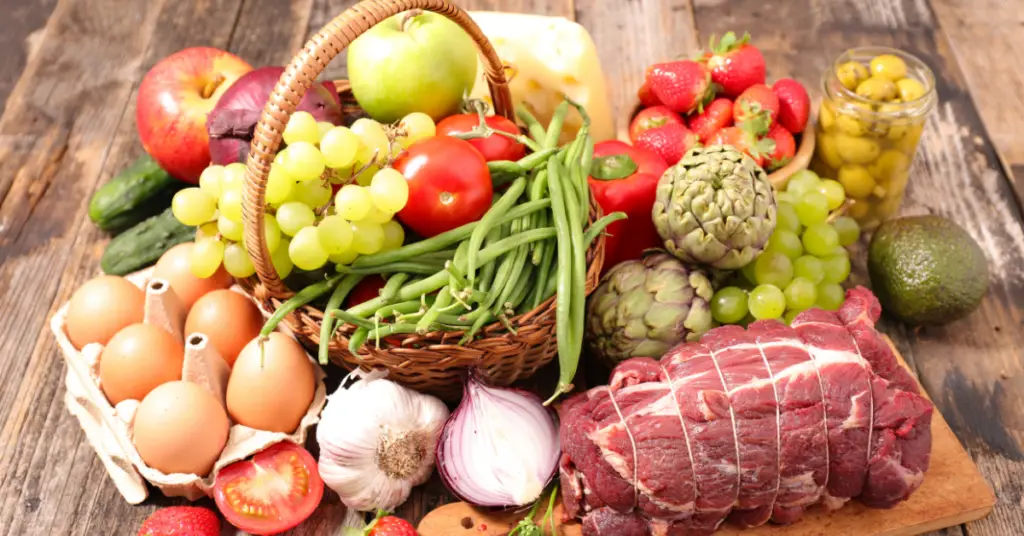Choosing organic foods supports sustainable agriculture while increasing the demand for foods grown without pesticides or artificial fertilizers.
Organic farmers take care to produce food in the healthiest manner possible, nourishing
their soil, rather than depleting it with the chemical fertilizers and pesticides, as used by many non-organic farmers.
The result is not only good for your body, it’s excellent for the environment, as organic farming reduces the amount of
CO2 in the atmosphere and that means less global warming!
Organic farming is a viable part of the solution to global warming, says Anthony Rodale, chairman of the Rodale Institute, referring to the results of a 23-year study by the non-profit educational and research organization that focuses on finding agricultural solutions to major health and environmental problems.
The study showed that organic soils absorbed more carbon from the atmosphere than did non-organic soils. Soluble nitrogen fertilizers rapidly decay organic matter, thus releasing carbon into the atmosphere instead of retaining it in the soil system.
Organic soil also contains microbes that produce “glomalin,” a gluey substance that keeps carbon in the soil and out of the air. The study showed that soil that had been organic for 23 years had 15 to 28 percent greater carbon content than soil tainted with pesticides and chemical
fertilizers.
The organic soil captured about 1,000 pounds of carbon and 3,500 pounds of carbon dioxide per acre-foot annually.
The collective effect of 10,000 medium-sized farms converting to organic production in the United States would store enough carbon in the soil to equal the effects of eliminating more than one million cars from the road.
With the average car emitting some 10,000 pounds of carbon dioxide a year, that’s a lot of
CO2 removed from our atmosphere.
Further study findings reveal even more impressive statistics:
160 million acres—all of the conventional corn and soybean land in the United States—going organic would equal 58.7 million cars taken off ofbthe road (25 percent of the total national fleet).
431 million acres—all of the cropland in the United States—going organic would equal more than 158 milllion cars taken off the road (more than half the national fleet).
Converting the U.S.’s 160 million corn and soybean acres to organic production would sequester enough carbon to satisfy 73 percent of the
Kyoto Protocol targets for CO2
reduction in the U.S.
Fortunately, the environmental benefits of organic farming do not necessarily come with a hefty price tag, as organic foods are totally worth it by moving closer and closer to the cost of conventional foods.
A shopping survey by a reporter at The Doctors’ Prescription for Healthy Living comparing 43 similar organic vs. non-organic food prices revealed a marginal price difference overall.
On many items, the price difference was negligible (one pound of organicnspaghetti was $1.29 compared to $1.19 for non-organic), or the organic item was actually cheaper; for example, a 10-ounce box of Cheerios was $3.79, while a
10-ounce box of New Morning Organic Oatios was only $2.69!”
Sticking to a budget on organics is not hard to do, with health food stores and outlets like Trader Joe’s stocking organic foods at comparable pricing to their non-organic
counterparts sold in the big chain supermarkets.
Local farmers’ markets support
organic farmers and provide another venue for buying seasonal organic produce
at great prices.
Buying organic produce in season is also important, as produce that is not in season locally has to travel a long distance to get to your table.
Buying organic food is easier than ever, making it a truly “simple” (yet amazingly effective) step towards stomping out global warming.

Erzsebet Frey (Eli Frey) is an ecologist and online entrepreneur with a Master of Science in Ecology from the University of Belgrade. Originally from Serbia, she has lived in Sri Lanka since 2017. Eli has worked internationally in countries like Oman, Brazil, Germany, and Sri Lanka. In 2018, she expanded into SEO and blogging, completing courses from UC Davis and Edinburgh. Eli has founded multiple websites focused on biology, ecology, environmental science, sustainable and simple living, and outdoor activities. She enjoys creating nature and simple living videos on YouTube and participates in speleology, diving, and hiking.

